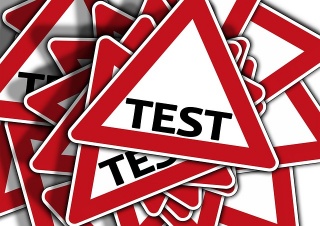The questions which follow provide a basic knowledge test of selected concepts covered in this learning pathway:
Conflict resolution.
The questions published at the end of each learning pathway are re-used for the knowledge test for learners interested in earning a digital badge or certificate of participation for the Leading and Managing People (PMAN102) micro-course. Please consult the Certify participation page for more information.
Indicate whether the following statements are true or false:
- Conflict is a process that involves people disagreeing and can range from minor annoyances to outright violence.
- TRUE
- FALSE
- No. This is a correct statement about conflict.
- A low level of task-related conflict is often viewed as optimal, because it represents a situation in which a healthy debate of ideas takes place.
- TRUE
- No. A medium level of task-related conflict is optimal.
- FALSE
- Correct. It is a medium level of task-related conflict that is optimal.
- Role conflict is a type of interpersonal conflict which includes having two different job descriptions that seem mutually exclusive.
- TRUE
- No. Role conflict is a type of intrapersonal, not interpersonal, conflict.
- FALSE
- Yes. Role conflict is a type of intrapersonal, not interpersonal, conflict.
- Some of the causes of conflict include organizational structures, limitations on resources, task interdependence, goal incompatibility, personality differences, and communication challenges.
- TRUE
- FALSE
- No
- All of these factors can lead to conflict within an organization.
Multiple choice questions
- Which THREE of the following are types of conflict? (Select all that apply - there are three correct answers)
- Intrapersonal conflict
- Intermediary conflict
- Incorrect. This is not a type of conflict.
- Interpersonal conflict
- Intergroup conflict
- Which THREE of the following describe conflict situations that can lead to dysfunction? (Select all that apply - there are three correct answers)
- The conflict paralyzes the organization.
- The conflict leads to less than optimal performance.
- The conflict reveals inaccurate assumptions.
- Incorrect. This is a positive outcome of conflict and is not dysfunctional.
- The conflict leads to workplace violence.
- Which TWO of the following are positive outcomes of conflict? (Select all that apply - there are two correct answers)
- Consideration of a broader range of ideas, resulting in a better, stronger idea
- Decreased participation and creativity
- Incorrect. Decreased participation and creativity are not positive outcomes of conflict.
- Clarification of individual views that build learning.
- Increased morale and low turnover.
- Incorrect. Increased morale and low turnover are not positive outcomes of conflict.
- Which ONE of the following describe jobs which are low risk for workplace violence? (Select one answer.)
- Employees handle weapons such as in law enforcement
- Employees work nights or weekends such as gas station attendants.
- Employees deal with valuables or exchange money, such as in banking.
- Employees create or maintain websites.
- Yes. Web developers work on computers in fairly safe environments.
